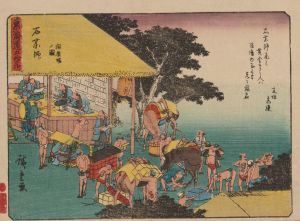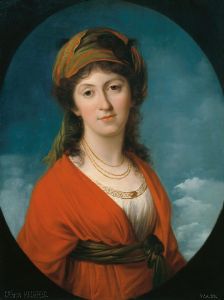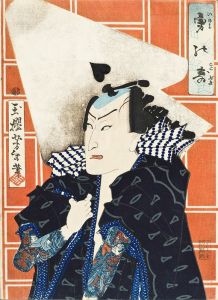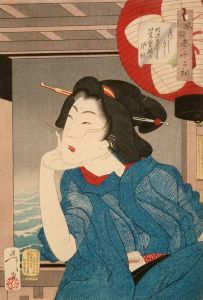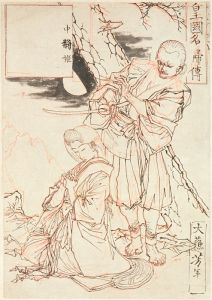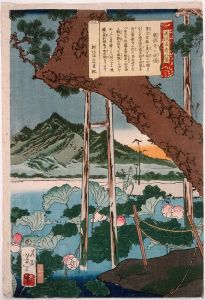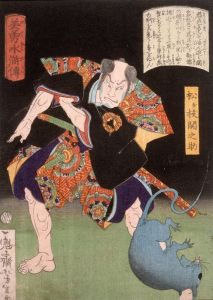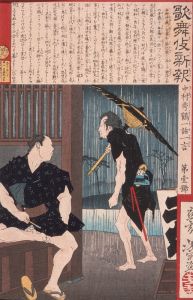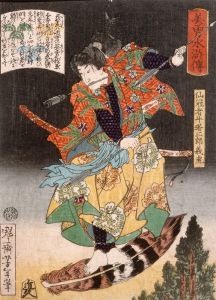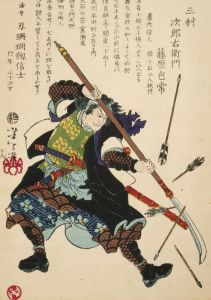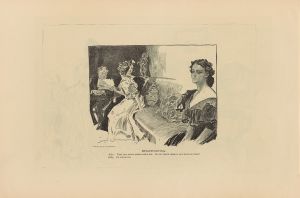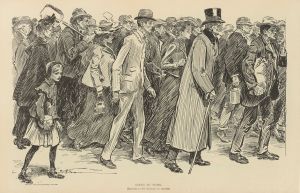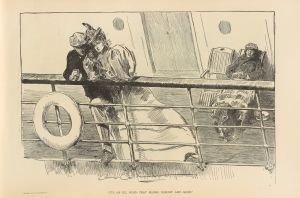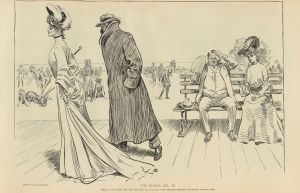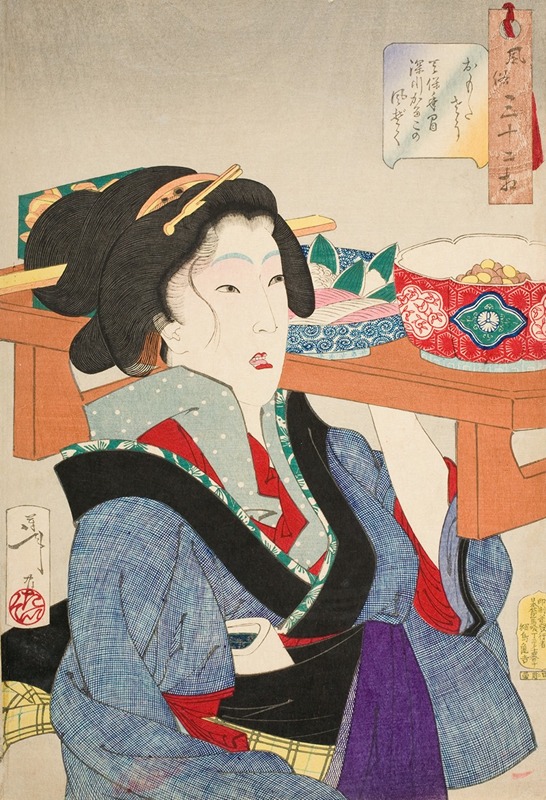
Looking Weighed Down; The Manner of a Waitress at Fukagawa in the Tenpō Era
A hand-painted replica of Tsukioka Yoshitoshi’s masterpiece Looking Weighed Down; The Manner of a Waitress at Fukagawa in the Tenpō Era, meticulously crafted by professional artists to capture the true essence of the original. Each piece is created with museum-quality canvas and rare mineral pigments, carefully painted by experienced artists with delicate brushstrokes and rich, layered colors to perfectly recreate the texture of the original artwork. Unlike machine-printed reproductions, this hand-painted version brings the painting to life, infused with the artist’s emotions and skill in every stroke. Whether for personal collection or home decoration, it instantly elevates the artistic atmosphere of any space.
"Looking Weighed Down; The Manner of a Waitress at Fukagawa in the Tenpō Era" is a woodblock print by the renowned Japanese artist Tsukioka Yoshitoshi. Yoshitoshi, who lived from 1839 to 1892, is celebrated for his innovative approach to the traditional ukiyo-e art form, which flourished during the Edo period in Japan. His works often depict historical scenes, folklore, and the supernatural, and he is particularly known for his series "One Hundred Aspects of the Moon."
This particular print is part of Yoshitoshi's exploration of the Tenpō era, a period in Japanese history that lasted from 1830 to 1844. The Tenpō era was marked by significant social and economic challenges, including famine and political unrest. It was a time when the Tokugawa shogunate faced increasing pressure both internally and externally, leading to various reforms and changes in Japanese society.
The artwork captures a moment in the life of a waitress working in Fukagawa, a district in Edo (modern-day Tokyo) known for its entertainment and pleasure quarters. Fukagawa was a bustling area where people from different walks of life mingled, and it was famous for its teahouses and the women who worked there. These women, often referred to as "waitresses" or "geisha," played a crucial role in the social and cultural life of the time, entertaining guests with music, dance, and conversation.
Yoshitoshi's depiction of the waitress is notable for its attention to detail and emotional depth. The title "Looking Weighed Down" suggests a sense of burden or fatigue, which may reflect the challenging conditions faced by women working in such environments during the Tenpō era. The print likely captures the complex emotions and social dynamics of the time, offering a glimpse into the lives of individuals who were often overlooked in historical narratives.
The composition of the print is typical of Yoshitoshi's style, characterized by bold lines, intricate patterns, and a keen sense of drama. His use of color and shading adds depth and texture to the image, drawing the viewer's attention to the central figure and her surroundings. Yoshitoshi's ability to convey emotion and narrative through visual elements is a testament to his skill as an artist and his understanding of the human condition.
"Looking Weighed Down; The Manner of a Waitress at Fukagawa in the Tenpō Era" is an example of Yoshitoshi's broader body of work, which often explores themes of beauty, struggle, and the passage of time. His prints are not only artistic achievements but also valuable historical documents that provide insight into the cultural and social fabric of 19th-century Japan.
Today, Yoshitoshi's works are highly regarded and continue to be studied and appreciated for their artistic merit and historical significance. His prints are held in collections around the world, and they remain a source of inspiration for artists and historians alike.





